Scores




Bipolar disorder, also known as manic depression, is a mental disorder that causes unusual shifts in a person's mood, energy, activity levels, thoughts, and the ability to carry out day-to-day tasks.
People with bipolar disorder experience 'high' and 'low' moods, which are more extreme than what people typically experience.
They range from periods of extremely "up," elated, and energized behavior (known as manic episodes) to "down," sad, or hopeless periods (known as depressive episodes).
These mood shifts can lead to a lot of stress and serious problems in everyday life, i.e. with family, at work, with finances, and even with the law.
It is estimated that about 4.4 percent of the U.S. adults experience bipolar disorder at some point in their lives.
People with bipolar disorder are more likely to seek help when they are depressed than when experiencing mania or hypomania. This can delay the proper diagnosis and treatment, which are essential to help people with bipolar disorder lead healthy and productive lives.
Talking with a doctor, either a primary care provider or mental health professional is the first step for anyone who thinks that they may have bipolar disorder.
The doctor usually completes a physical exam to rule out other conditions that may present with similar signs and symptoms.
After that, the doctor may conduct a mental health evaluation or provide a referral to a trained mental health professional, such as a psychiatrist, who is experienced in diagnosing and treating bipolar disorder.
The Mood Disorder Questionnaire (MDQ) is an excellent screening tool developed by a team of psychiatrists and researchers to address the need for timely and accurate evaluation of bipolar disorder. The MDQ is considered a gold standard screening tool that can be easily utilized in everyday clinical practice.
This questionnaire can be administered either by the clinician or self-administered by the patient, which could be a lot easier on a mobile device.
This is perhaps the reason why Eddie Liu, the app developer, and Duke student, designed Bipolar Disorder Test app. It should be noted that Eddie Liu developed over 20 other apps that deal with mental health issues. Here at SteadyHealth, we reviewed his MoodTools app.
Bipolar Disorder Test app is designed to evaluate symptoms of bipolar disorder with a scientifically-supported 15-question test. It uses the Mood Disorder Questionnaire (MDQ), a screening tool for bipolar spectrum disorder we mentioned above.
This app also contains plenty of information to help people with bipolar disorder and their family members get a better understanding of this mental illness.
The interface of Bipolar Disorder Test app is quite simple. There are three options on the home screen including Start Test, Result, and Information.
Start Test initiates the Mood Disorder Questionnaire (MDQ), which consists of 15 questions and takes about 5 minutes to complete. The first 13 questions are about possible bipolar disorder symptoms and are answered with either "Yes" or "No." The remaining 2 questions assess the presentation of symptoms and disease severity.
Once the questionnaire has been completed, the result would be displayed, indicating whether or not the user may be suffering from bipolar spectrum disorder.
In order to screen positive for a possible bipolar disorder, the user must answer:
"Yes" to 7 or more of the 13 items in Question 1, and
"Yes" to Question number 2, and
"Moderate Problem" or "Serious Problem" to Question 3.
The Result help users understand their test results and get advice tailored to that result. For example, people whose results indicate they may be suffering from bipolar disorder are suggested to consult their doctor or mental health professional right away, while people whose score doesn't meet the criteria for bipolar disorder are advised to continue monitoring their symptoms and talk to their doctor if necessary.
The Information section allows users to learn more about bipolar spectrum disorder and discover additional resources that can help them on their path to recovery.
This section uses information from the NIMH Health Topics page on Bipolar Disorder, including general information about the four types of bipolar disorder, signs and symptoms, connection with other illnesses, risk factors, and treatments.
This section also contains links and phone numbers to be contacted in case of crisis. In my opinion, suicide hotline should be placed more prominently, perhaps with the three main sections on the home screen.
The disclaimer about the app use is placed there. It states that the MDQ is a self-administered tool used to screen for bipolar disorder; it is NOT a diagnostic test.
A diagnosis can only be provided by a qualified health care professional, such as a physician or mental health professional. Users of the app are advised to consult them if they are concerned about bipolar disorder.
Overall, the Bipolar Disorder Test app is an easy-to-use mobile version of the Mood Disorder Questionnaire (MDQ).
It is a simple, yet valuable tool, ideal for primary care use, as well as if self-administered by the patient.
Benefit: The app is primarily designed for patients, family members, and caregivers. Primary care physicians, psychiatrists, psychologists, or any provider who evaluates patients with mental health conditions could benefit from this app as well.
Verdict:
For- Easy to use and navigate
- The mobile version of MDQ, a gold standard screening tool for bipolar disorder
- Scientifically-supported questionnaire and information
- Nothing bad to say about this app


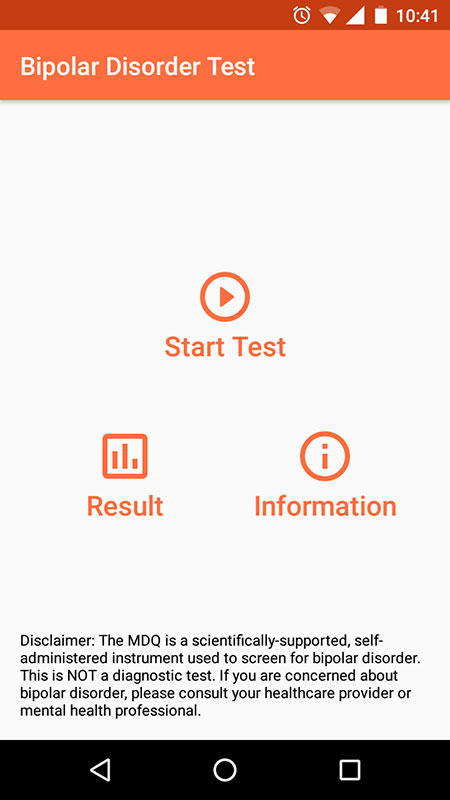
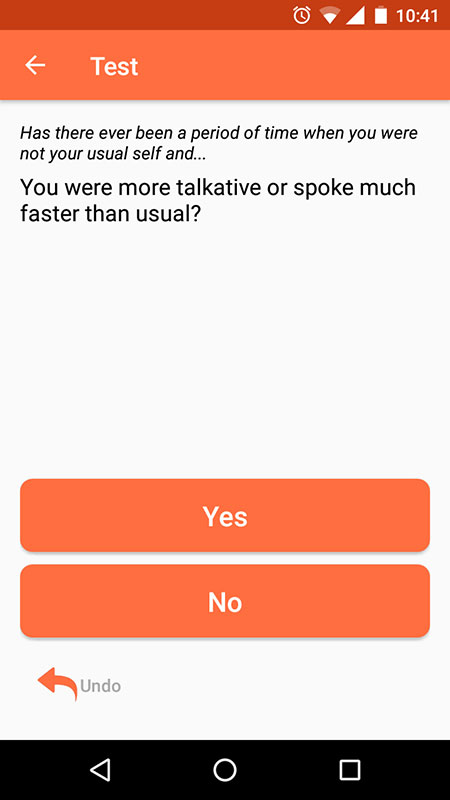
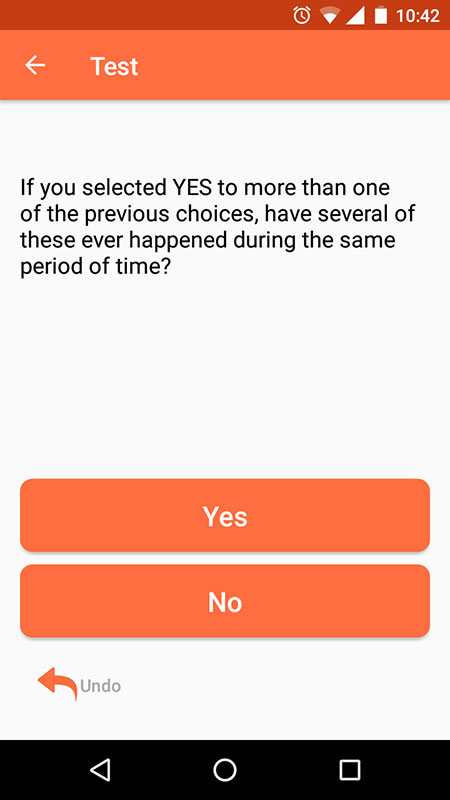
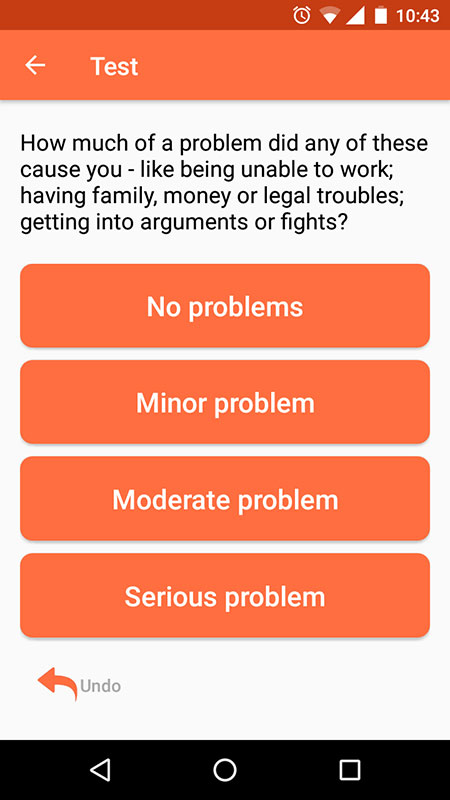
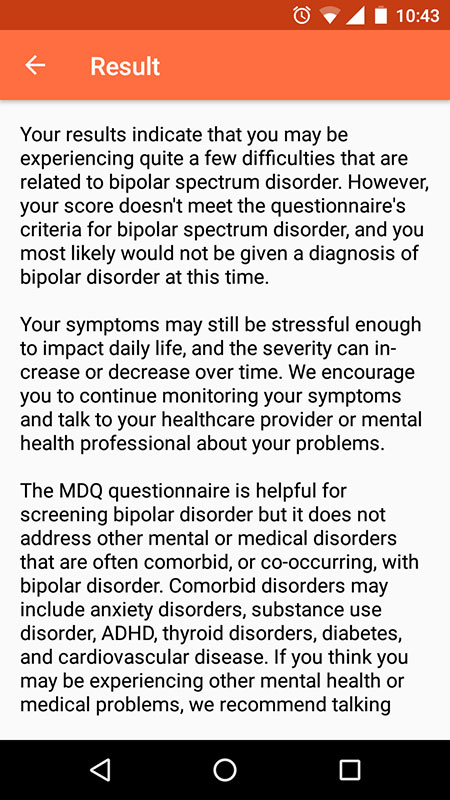
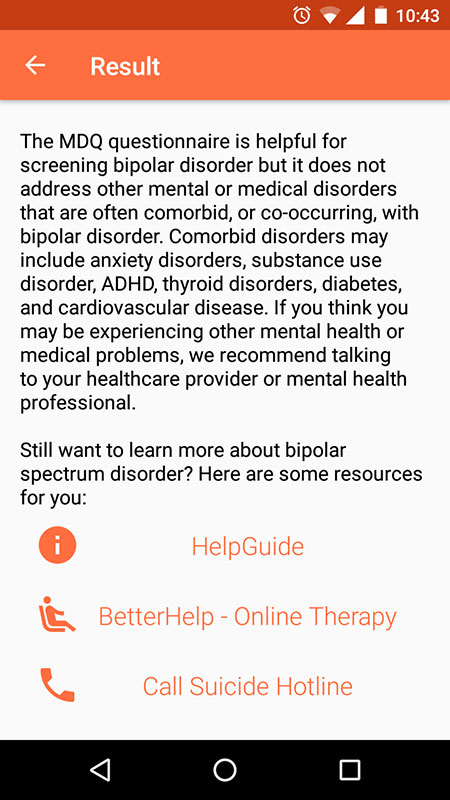
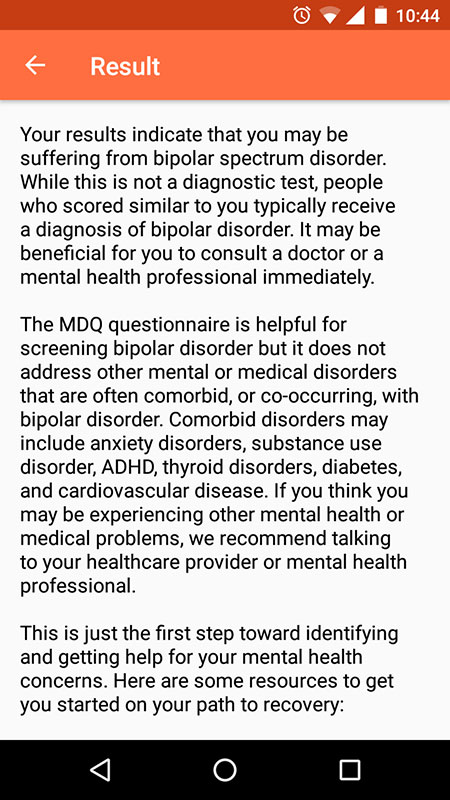
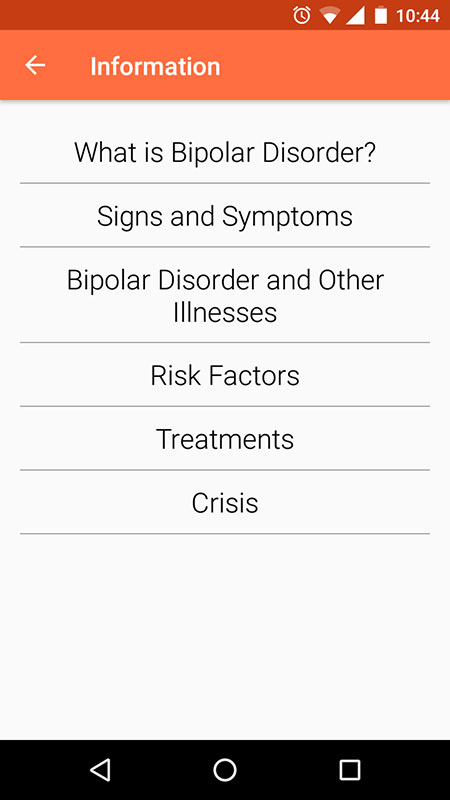
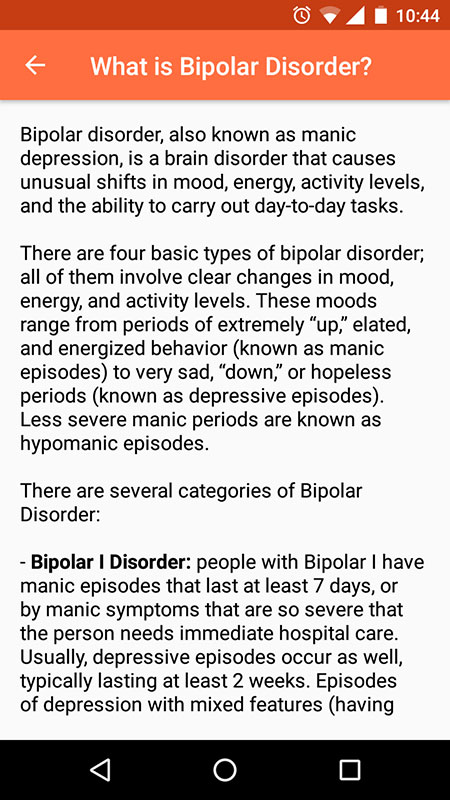
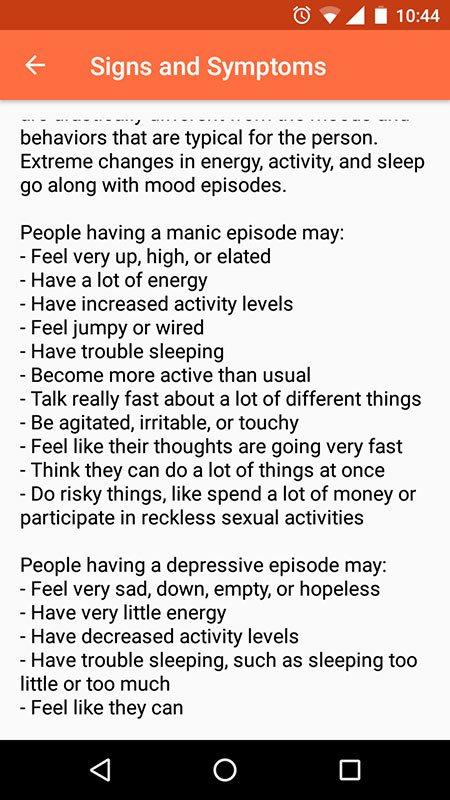
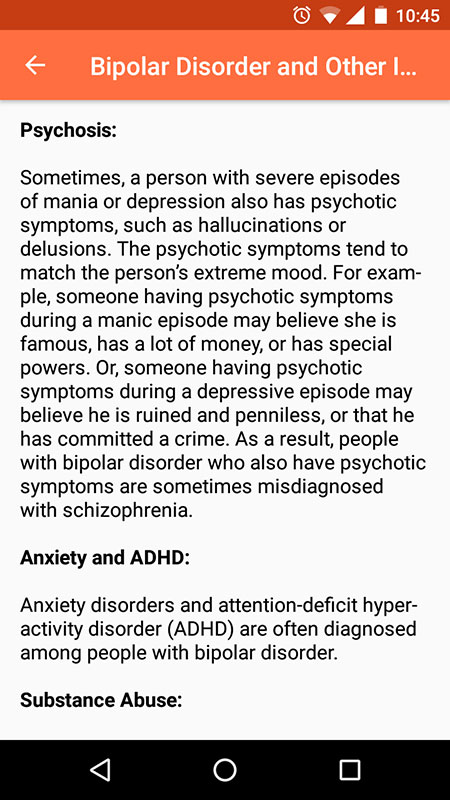
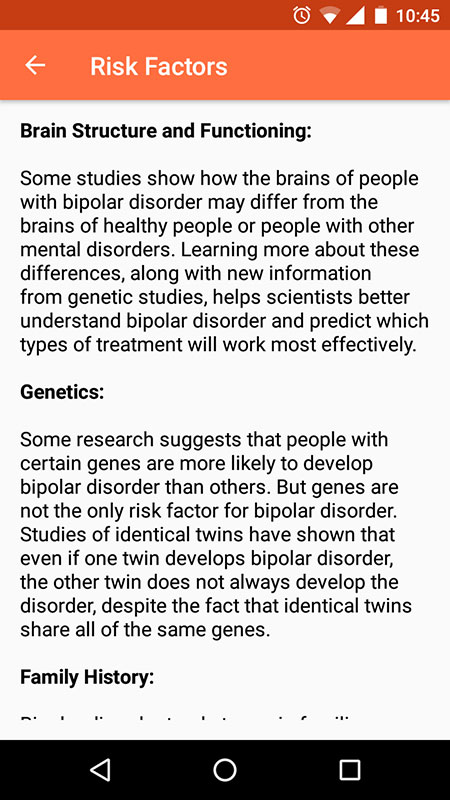
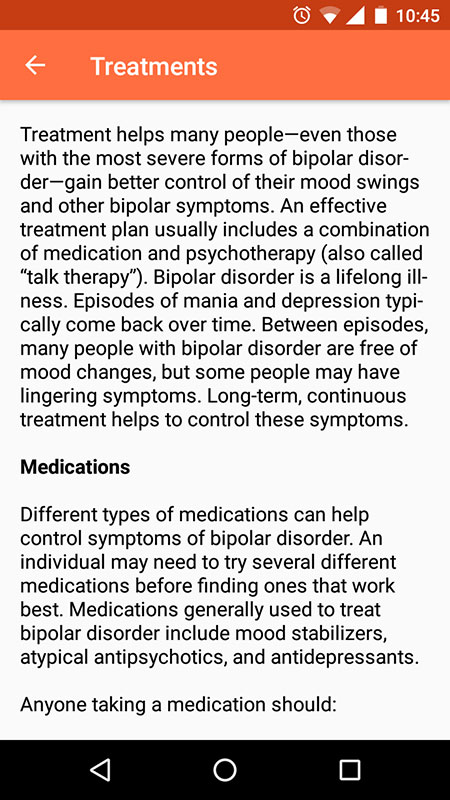
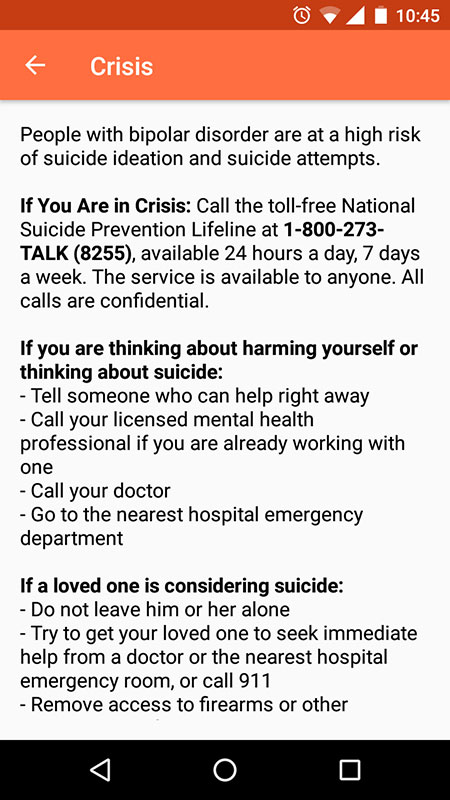
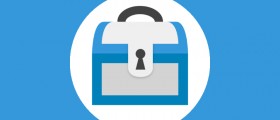
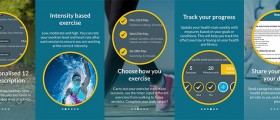
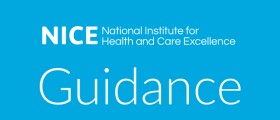












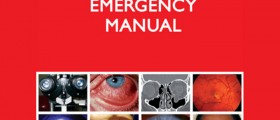



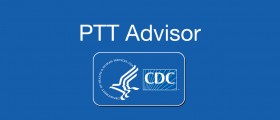
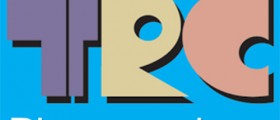

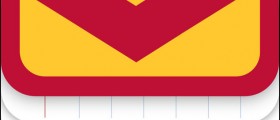

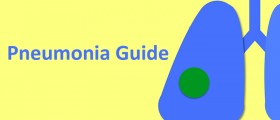
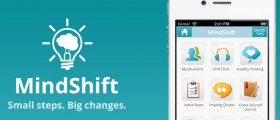

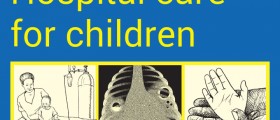

Your thoughts on this
Loading...